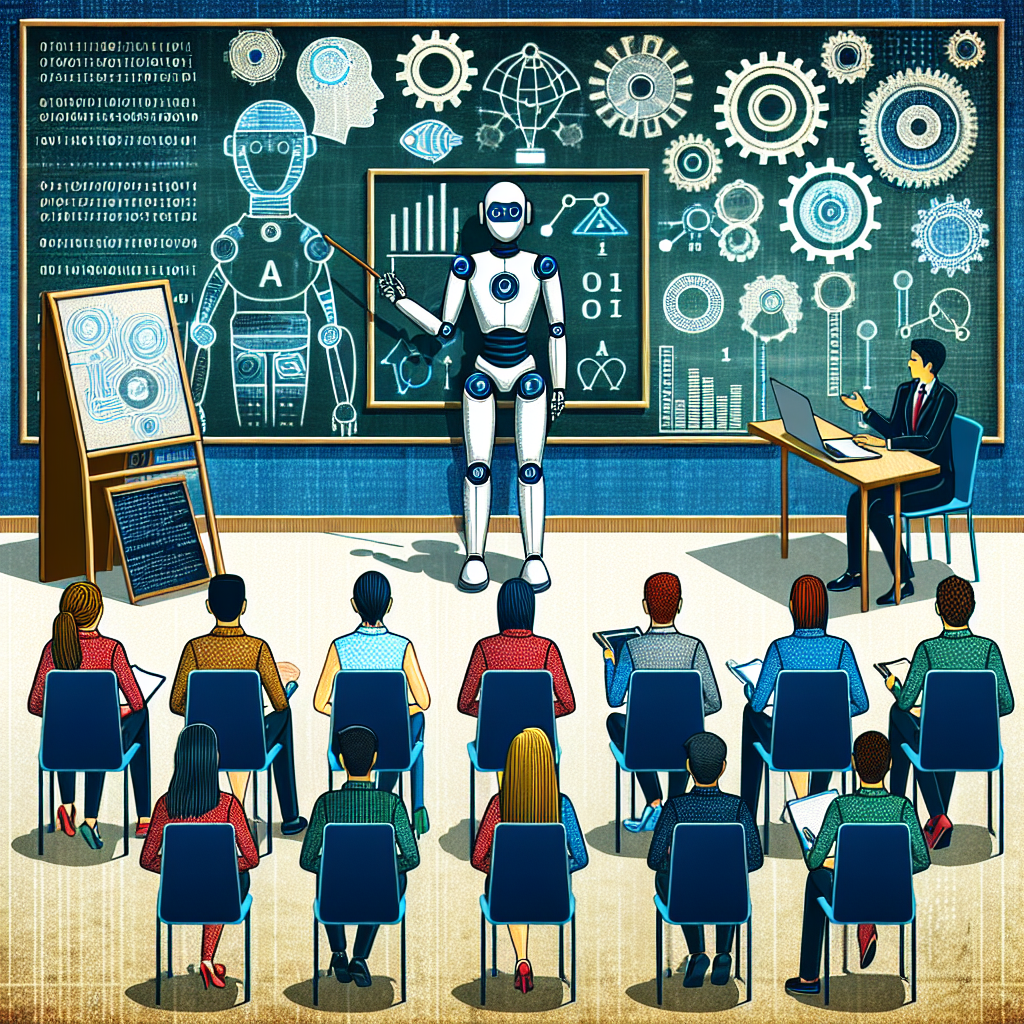Artificial Intelligence (AI) is revolutionizing the way businesses operate, and workforce development is no exception. AI deployment in job training is enhancing the skills and capabilities of employees, leading to a more efficient and productive workforce. In this article, we will explore how AI is being used in workforce development to improve job training programs and help employees stay competitive in today’s evolving job market.
AI in Workforce Development: Enhancing Job Training
AI technology has the potential to transform workforce development by providing more personalized and adaptive learning experiences for employees. By analyzing large amounts of data, AI can identify gaps in employees’ skills and knowledge and tailor training programs to address those gaps. This personalized approach to job training can help employees learn more efficiently and effectively, leading to improved performance on the job.
One of the key ways AI is being used in workforce development is through the development of virtual reality (VR) and augmented reality (AR) training programs. These immersive technologies allow employees to practice real-world scenarios in a safe and controlled environment, helping them develop the skills they need to succeed in their jobs. For example, a manufacturing company may use VR technology to train employees on how to operate complex machinery, while a customer service company may use AR technology to simulate interactions with customers.
AI is also being used to automate the process of creating training materials. By analyzing existing training content and employee performance data, AI can generate personalized training materials that are tailored to each employee’s specific needs. This not only saves time and resources for training departments but also ensures that employees are receiving the most relevant and up-to-date information.
Another way AI is enhancing job training is through the use of chatbots and virtual assistants. These AI-powered tools can provide employees with instant access to information and support, helping them troubleshoot problems and answer questions in real-time. This can be especially helpful for remote workers or employees in fast-paced environments who need quick and convenient access to training resources.
FAQs:
Q: How can AI help improve employee retention and engagement in job training programs?
A: AI can improve employee retention and engagement in job training programs by providing personalized and adaptive learning experiences that cater to each employee’s individual needs and preferences. By analyzing data on employee performance and learning styles, AI can create training programs that are more engaging and effective, leading to higher retention rates and improved job performance.
Q: What are the potential challenges of deploying AI in workforce development?
A: One potential challenge of deploying AI in workforce development is the need for proper training and support for employees who may be unfamiliar with the technology. Additionally, there may be concerns about data privacy and security when using AI to analyze employee performance data. It is important for organizations to address these challenges and ensure that employees are comfortable with the use of AI in job training programs.
Q: How can organizations measure the effectiveness of AI in workforce development?
A: Organizations can measure the effectiveness of AI in workforce development by tracking key performance indicators such as employee retention rates, job performance metrics, and training completion rates. By analyzing these data points, organizations can determine the impact of AI on job training programs and make adjustments as needed to improve outcomes.
In conclusion, AI deployment in workforce development is revolutionizing the way employees are trained and developed. By providing personalized and adaptive learning experiences, AI is helping employees stay competitive in today’s job market and enhancing their skills and capabilities. With the continued advancement of AI technology, we can expect to see even greater improvements in job training programs and workforce development in the years to come.

